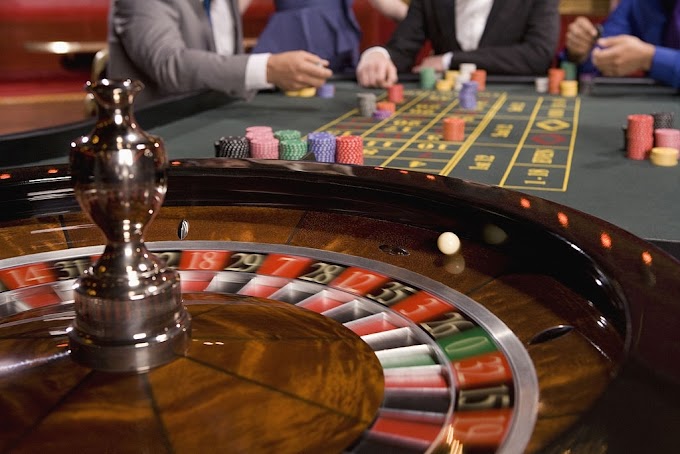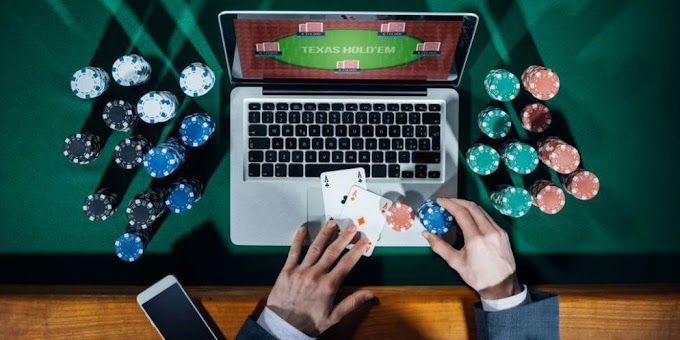Have you ever spent hours playing “Super Mario Bros”? If so, you are part of a generation that witnessed the magic of early console gaming.
Today, we’re no longer just playing games – we’re owning assets, earning tokens, and influencing in-game economies. Well, that’s the era of blockchain in gaming!
As a leading game development company, we are excited to see how blockchain is transforming the gaming landscape. With this crypto gaming evolution, developers and players are entering into a new world where NFT gaming, Web3 ecosystems, and decentralized gaming platforms are reshaping how games are made, played, and profited from.
And to the surprise, this shift in blockchain games is massive. The global blockchain gaming market is projected to grow from $4.6 billion in 2022 to a staggering $65.7 billion by 2027.
So, if you are curious about how blockchain gaming is redefining the gaming industry, this blog is for you!
Let’s have a look!
Blockchain Game Development: A Quick Recap
Before understanding the impact of blockchain in gaming, let’s take a look at how this technology is actually used in game development!
Basically, blockchain technology is a decentralized ledger that records transactions across several nodes of computers. For game developers, it allows them to build secure, transparent, and tamper-proof gaming economies.
At its core are smart contracts that are self-executing agreements written in code, which allow actions such as asset trading, levelling up, or unlocking rewards. Smart contracts in gaming tend to reduce the risk associated with fraud and help automate gameplay mechanics.
This has resulted in the rise of Web3 games, where players don’t just participate; they own. Some examples include play-to-earn games and crypto-powered games that reward players with tokens and NFTs.
Key Benefits of Blockchain in Game Development
Gaming has always faced some of the issues in the past, such as fraud, hidden costs, high fees, and data breaches. But blockchain solves every issue. Here are the benefits involved in blockchain game development:
● True Ownership of In-Game Assets
In traditional games, you don’t really own your in-game items; they are controlled by the game developer.
But with blockchain, players can really own their digital assets, like skins, weapons, or even characters. And these items are stored as NFTs and can be sold or traded.
● Play-to-Earn Opportunities
What if you have been told that you can make money while playing your favorite game? Well, with play-to-earn blockchain games, you can play and earn.
You play, earn crypto tokens or NFTs, and those assets can be traded for real money. With blockchain, it’s not just about fun anymore; it’s about earning money too.
● Decentralized Control
In traditional console games, everything is controlled by the game company. They decide what happens, how the game runs, and when updates happen.
However, in blockchain games, control is spread across a decentralized network. That means the players have more say, and the game can’t just be taken down or changed by one person.
● Transparency & Fairness
Have you ever felt that you were cheated in a game? Maybe one of your in-game crypto rewards just disappeared, or a transaction went wrong?
In blockchain games, everything is kept transparent. Players can see exactly how things work because blockchain keeps track of everything. This makes the game fairer, as no one can secretly change the rules or take advantage of others.
● Enhanced Security
Blockchain is known for its security. It is hard to hack or change the records once they are stored on the blockchain.
This also means that in-game assets, player data, and even rewards are safer from fraud or cyberattacks.
The Rise of Play-to-Earn (P2E) and GameFi
Today, P2E games and GameFi have become major buzzwords in the gaming and blockchain space. But what exactly are they, and why are they so popular?
GameFi is basically a combination of gaming and finance, which allows players to earn money or valuable assets through gameplay.
In this, players don’t just play for fun; they can also earn in-game assets such as NFTs or cryptocurrencies by completing missions, levelling up, or participating in in-game economies. Players may simply trade or sell them on other blockchain marketplaces as they have real-world value.
On the other hand, Play-to-Earn (or rather, P2E) games reward players for their time and skills. Instead of spending money to buy in-game assets or advanced features, players can easily earn rewards through gameplay.
Players can easily buy, sell, or exchange digital assets in P2E games thanks to their own in-game economies, which are similar to those in the real world. And the supply-demand dynamics help shape the value of these assets.
NFT Integration in Games
NFTs, or Non-Fungible Tokens, are transforming the gaming industry as they give players real ownership of digital assets. Let’s take a sneak peek at how NFTs are changing the gaming era!
● Own Your Characters
In games like Axie Infinity, players have the opportunity to own their game characters as NFTs. This allows them to trade, sell, or use them across different platforms.
● Collect Rare Skins & Items
Skins, weapons, and other in-game items can now be tokenized as NFTs. These digital assets are buyable, sellable, and tradable in decentralized markets.
● Virtual Land Ownership
Games like Decentraland allow players to buy and sell virtual land as NFTs. These digital properties can be developed, rented, or sold, creating an entirely new avenue for investment.
● Secure Item Trading
Players can safely trade NFT gaming assets across multiple games or marketplaces. It ensures transparency and value in every transaction.
In all, NFTs are not only enhancing the gameplay for players; they are reshaping the entire gaming economy by offering ownership and financial opportunities.
Successful Blockchain Games Leading the Way
Compared to traditional gaming, blockchain gaming is still considered a niche market. But there are several crypto gaming success stories that are making waves. Here are some popular ones:
● Axie Infinity
If you are a great Pokemon fan, you would relate with this game! Axie Infinity is one of the popular blockchain games that allows players to collect, breed, and battle digital creatures called Axies. In this Web3 game, players have the chance to earn the in-game cryptocurrencies either by winning battles or completing tasks.
● Decentraland
Decentraland is a virtual world where players can buy, sell, and develop virtual land, all represented as NFTs. In this game, users can build their own virtual properties, host events, and create immersive experiences. It allows players to have complete control over their in-game assets and participate in a thriving gaming economy.
● The Sandbox
The Sandbox is a decentralized gaming platform where players can easily create, own, and monetize their own virtual worlds. The game’s NFT integration allows users to own land, avatars, and items and even participate in the economy by trading assets with others.
● Gods Unchained
Gods Unchained is a blockchain-based card game where each card is an NFT. It allows players to buy, sell, and trade cards on the marketplace. The game combines traditional card gameplay with blockchain technology to ensure true ownership of cards and other in-game assets.
● Illuvium
Illuvium is a next-generation open-world RPG that is known for its focus on capturing and battling Illuvials, which are NFTs. Players can explore a massive world in this game, capture rare creatures, and trade them in a decentralized marketplace.
The Future of Gaming: Metaverse and Beyond
Without a doubt, blockchain technology has a bright future in the gaming industry. We will likely see more platforms and games use blockchain to create games as this technology becomes more widely used.
According to the latest reports, Web3 gaming is the ultimate future that will redefine the gaming industry. That’s because it's offering players full ownership of in-game assets and the right to make decisions without any intermediary involved.
Thus, we can now simply predict the future and how blockchain in gaming will shape it!
How can Technoloader help?
Blockchain technology is playing an important role in the gaming industry. That’s because it allows real-time access to data on the network and has in-built security features that make it the perfect option for recording transactions occurring in games.
Additionally, by investing in blockchain-based games, businesses can maintain their competitive edge and offer players an enjoyable gaming experience.
At Technoloader, we are known as the leading provider of blockchain game development services that can help you take your gaming business to heights of success. Our team of experts have 7+ years of experience in the industry and can help you create engaging and exciting blockchain-based games.
Get in touch with us today to find out how we can help you in developing your Web3 and blockchain games!
FAQs
How does blockchain change traditional gaming?
Blockchain transforms traditional gaming by shifting control from centralized companies to players. It enables asset ownership, play-to-earn models, and transparent in-game economies that are powered by crypto and NFTs.
Are blockchain games safe and secure?
Yes, of course! Blockchain games are typically more secure due to the decentralized and immutable nature of blockchain. However, users must also protect their wallets and private keys.
Can NFTs be used in games?
Yes, NFTs can represent characters, skins, weapons, land, or other in-game assets that players can trade, sell, or use across compatible games.
How do blockchain games generate revenue?
Blockchain games earn revenue through:
- NFT sales
- Token launches (IDOs/ICOs)
- Transaction fees
- In-game marketplaces
- Sponsorships and advertising in decentralized environments
What platforms are used to develop blockchain games?
Some of the most popular platforms used to create blockchain games include:
- Unity and Unreal Engine with blockchain SDKs
- Solana, Ethereum, Polygon, and BNB Chain for smart contracts
- Moralis, Chainlink, and IPFS for backend and asset storage






0 Comments